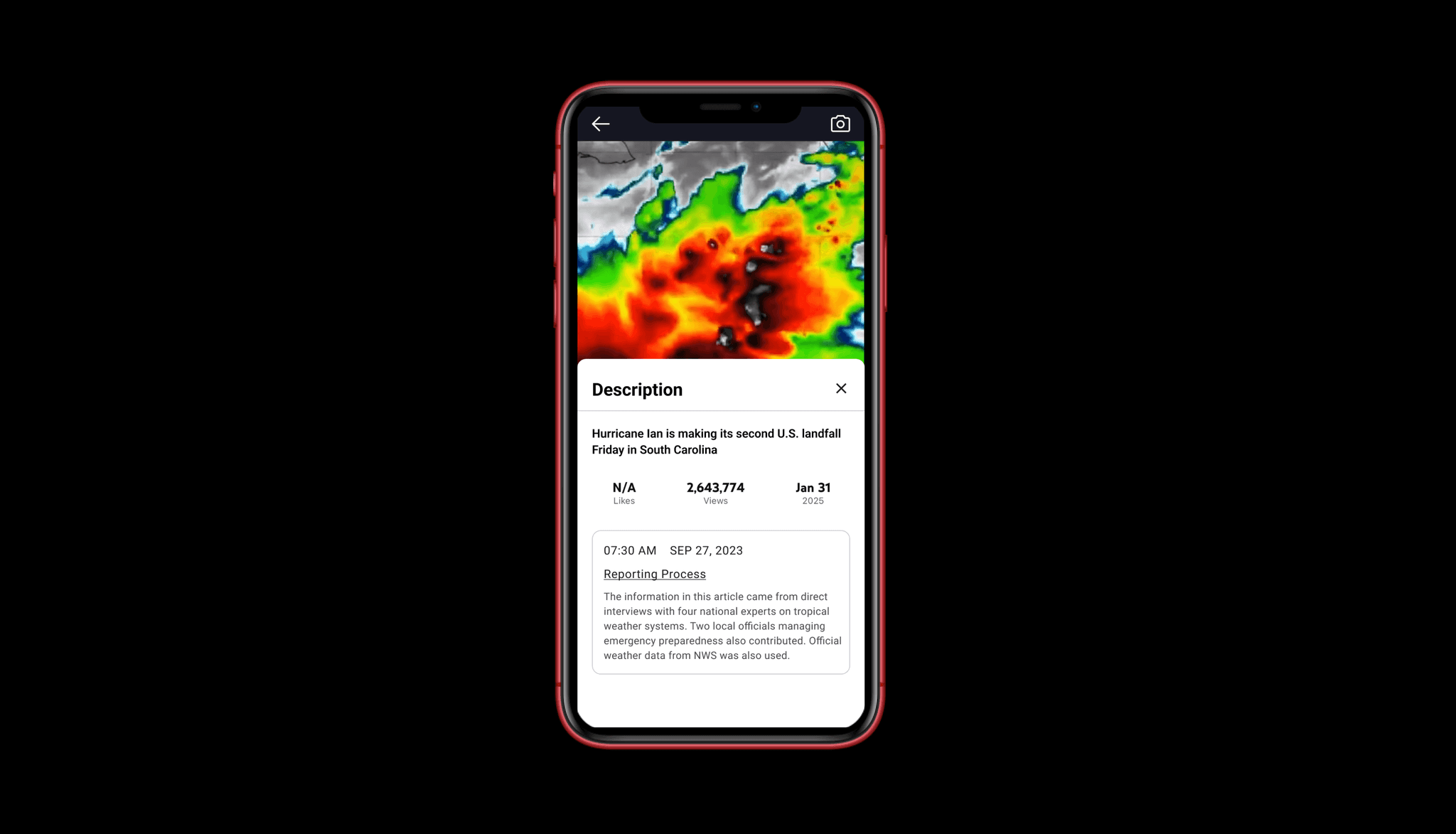Introduction
As part of my internship with the Google News team, I explored ways to enhance how news content is communicated across Google’s platforms. Our primary focus was understanding how social-first formats, like YouTube Shorts, could better support credible journalism. With the rising popularity of short-form video and its role in breaking news, I wanted to bridge the gap between virality and verifiability.
The Challenge
While YouTube Shorts has become a key medium for real-time news dissemination, it often lacks transparent source verification and context. Misinformation can easily spread, especially during emergencies such as natural disasters or political unrest. With viewers’ low attention spans and tolerance for complex information, there was a need for a clear, efficient system to surface credible content and clarify the reporting process.
What I did?
I took initiative to dive deeper into how YouTube Shorts operates:
Algorithm Behavior: Shorts are powered by a discovery-based algorithm prioritizing engagement (likes, comments, watch time), not necessarily accuracy.
User Behavior: User Research shows that over 70% of Gen Z and Millennials consume news via social video, with low tolerance for friction or skepticism. Many are unaware of the source of the video or the authenticity of the content.
Design Gaps: YouTube Shorts lacks a mechanism to verify news-based videos within the app itself, unlike traditional Google News articles.
These insights guided my direction — to create a low-friction yet effective intervention that informs without interrupting.
"
70% of Gen Z and Millennials consume news via social video, with low tolerance for friction or skepticism
Conceptualize
I conceptualized an interaction model grounded in Material Design guidelines and credibility UX principles. The solution had two core ideas:
Source Verified Badge: A subtle visual badge on the Shorts screen indicating that the video was vetted and verified by trusted sources. This maintains trust without overwhelming the user.
Reporting Process Module: A tap-enabled Description panel, seamlessly integrated into the Shorts experience, provides contextual background for the video. This panel can be accessed either by tapping the Verified Source card on-screen or through the meatball menu, aligning smoothly with existing interaction patterns in Shorts.
"
This approach provides context on demand, avoiding disruption while promoting transparency.
Designs
The designs were crafted to be:
Efficient & Non-intrusive: All overlays are responsive and adaptive to the screen. Key info like “Source Verified” appears within the visual hierarchy but doesn’t detract from the video.
Trust-building: A user can quickly see where the video originated and how it was verified — crucial during sensitive news events.
Scalable Across Videos: The modal system can be used for any category of news (weather, politics, emergencies) and is compatible with YouTube’s visual language.
Impacts
This concept offers measurable improvements in how news is experienced via Shorts:
Boosts Credibility: Verified tags and transparent reporting build immediate trust with viewers.
Supports the Algorithm: Clear source info can be used as metadata to improve surfacing of reliable content.
Empowers Users: With fast, contextual insights, viewers feel informed — not manipulated.
This solution aligns with Google’s mission to organize the world’s information and make it universally accessible and useful — even in 60-second formats.







